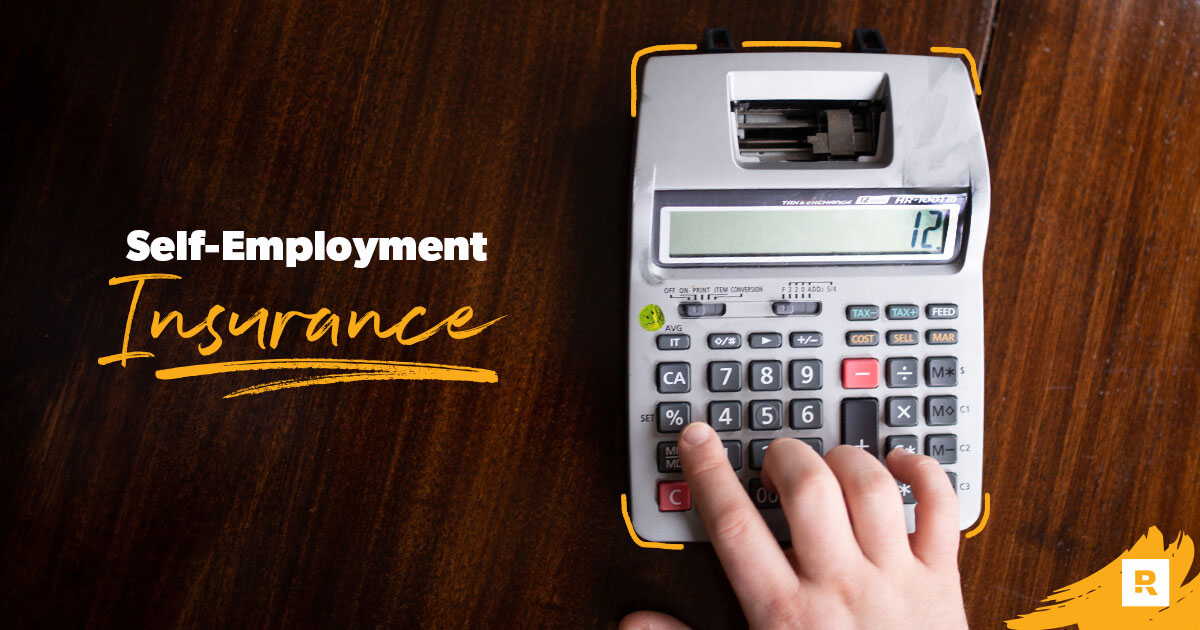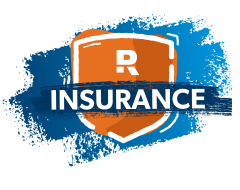What Types of Insurance Do You Need If You're Self-Employed?
10 Min Read | Dec 11, 2023

More Americans are exchanging their stuffy cubicles for the freedom of self-employment. And why not?
You get to control how you do business. You set your own hours. You decide who’s on your team. Those are some sweet perks! So it’s no surprise that there are currently 15 million self-employed professionals in the American workforce today, and that number could nearly triple in the next two years.1
But in business (and life) there are some things you can’t control or predict.
What if something goes wrong at the construction site and one of your clients gets hurt? Or what if you get injured in a freak accident and can’t work anymore? Those what-ifs are enough to turn any self-employed entrepreneur’s dream into a nightmare.
That’s why if you are self-employed, you need to have insurance to protect you, your family and your business. You’ve worked too hard to leave anything unprotected!
But how do you know what types of self-employed insurance you need and which ones you don’t? Let’s take a look at four insurance types that will give you peace of mind.
1. Self-Employed Health Insurance
There are a couple things you need to know about health insurance if you’re self-employed.
First, you absolutely need health insurance. It’s not an option. You’ll face a government penalty if you don’t have health insurance this year.2 But more importantly, you’re putting yourself and your family at great risk if—actually, when—a medical emergency hits.
And second, if you’re used to getting your health insurance through your workplace, brace yourself for some sticker shock. You won’t share the costs of health insurance with an employer anymore, so you’ll be paying for it all yourself!
But here’s a little good news: There’s a tax deduction on health insurance premiums for self-employed professionals, which can help soften the blow by lowering how much you owe in taxes to Uncle Sam.3 Working with a tax pro can help you find out what kind of tax break you can get and how to take advantage of those savings.
So how can you reduce self-employed health insurance costs?
One of the best ways you can save money on health insurance is by signing up for a high-deductible health plan (HDHP).
Choosing a plan with a higher deductible means you’ll pay more for health services before your insurance plan kicks in. But in exchange, you’ll have lower monthly premiums. And besides, that’s why you have a fully funded emergency fund in place. So if you break a leg trying to bust a move on the dance floor, your ego might take a hit but at least it won’t break the bank!
Your high-deductible health plan also gives you the option to open a health savings account (HSA), which makes an HDHP an even better deal! With an HSA, the money in that account isn’t taxed, so you can take advantage of tax-free savings to pay for any out-of-pocket health care costs.
It’s a great idea to sit down with an independent agent who can help you understand your options and find the best plan for your budget and your family’s needs. They can help you find the best deals and the right coverage for you!
2. Term Life Insurance
If your spouse and kids rely on you and the income you make from your business, they need to know they’re covered financially if you die unexpectedly. It’s not fun to think about, but you don’t want your family to wonder how they’ll put food on the table or keep the lights on after your funeral. That’s what the stakes are, and this is where life insurance comes in.
Do you have the right insurance coverage? You could be saving hundreds! Connect with an insurance pro today!
Life insurance has one job and one job only: It replaces your income when you die. But not all life insurance is created equal. Here are some guidelines to follow when choosing life insurance:
1. Go with term life insurance.
Term life insurance provides life insurance coverage for a specific amount of time and if you die during that term, your family will receive a payout from the insurance policy. It’s much less expensive and by far a better value than whole life and other types of cash value insurance. It’s the only way to go!
One of the biggest insurance myths out there is that you will always need life insurance. That’s just not the case! Here’s the truth: You won’t need life insurance forever if you plan wisely, dump debt, and build wealth. We’ll get into that in a second.
2. Purchase a term life insurance policy for 10–12 times your annual income.
Since you’re self-employed, trying to guess how much you’ll make in a single year might seem like a fool’s errand since no two years are ever the same. You’d probably have better luck trying to guess the winner of the Super Bowl five years from now!
But you can still use an average annual income from the past few years as a guide. Or make an educated guess about how much you’ll make this year. Then you can use that number as the basis for how much life insurance you need.
The 10–12 times your annual income rule of thumb is not just a random number. It’s a solid baseline for the amount you’ll need to replace your lost income. That way, your family will be taken care of if you’re not there to provide for them.
3. Buy a policy that will last until your kids leave or you become self-insured.
You can usually get term life policies with coverage that lasts anywhere from 10 to 30 years. We recommend 15 or 20-year terms. Let’s say you’re 30 years old with a toddler and you buy a 20-year term policy worth $500,000. If you invest consistently for two decades, you should have enough money saved up to be self-insured by the time the term ends.
Life happens. Circumstances change. That means you need to check your policy from time to time to make sure you have enough insurance to cover your family in case something happens to you.
To get a term life quote or talk to someone about your existing policy, we recommend checking out Zander Insurance.
Get coverage you can trust.
When a RamseyTrusted pro is in your corner, you have an insurance guide you can trust who will give you confidence in your coverage.
3. Business Insurance
Whether you’re a plumbing contractor or a freelance journalist, there’s always risk involved with your job. Some people are more likely to get injured on the job while others might be at risk to get a lawsuit slapped on them.
Being self-employed means you need some kind of business insurance to cover the risks associated with your job. Here are four main types of business insurance you should look into:
General Liability Insurance
If someone slips and falls on a wet floor in your coffee shop or you accidentally break an expensive vase during a housecleaning gig, liability coverage will protect you from losing money if they decide to sue you. General liability also covers you if you’re sued for slander. You can buy this kind of coverage as a stand-alone policy or in a business owner’s policy.
Professional Liability Insurance
Look, nobody’s perfect. We all make mistakes. And that’s where professional liability insurance comes in. It’s also known as errors and omissions insurance, and it provides coverage that protects you if a client is harmed by a service you provide or advice you give. While general liability mostly protects against physical injuries and damages, professional liability protects against financial loss.
Business Owner’s Policy (BOP)
These policies are like a general liability insurance policy on steroids. They combine several insurance coverages (like general liability coverage) into one convenient package at a reduced rate. A BOP might also include coverage that protects your business property and equipment and helps you pay the bills if your business needs to close temporarily.
Bonus: It’s not really insurance, but a small-business accounting expert can help reduce risk—and stress—by keeping your books, payroll, and taxes in order. Find accounting help for your small business today.
Workers’ Compensation
If you have any employees, workers’ compensation coverage is mandatory by law. If any of your employees are injured at work, this coverage will generally cover their lost wages, medical expenses and rehabilitation expenses.
The cost and type of business insurance you’ll need will depend on what kind of work you do. For example, as an independent construction worker you might not be eligible for a BOP because your industry is considered high risk. In that case, you’d probably be better off going with a general liability policy.
To choose the right policy, you should reach out to one of our Endorsed Local Providers (ELPs) to discuss your insurance needs and get some quotes to see how much these policies will cost you.
4. Long-Term Disability Insurance
If you have an accident or health condition that prevents you from working, disability insurance kicks in and provides an income for you and your family.
Disability insurance is one of the most overlooked types of insurance out there. There are more than 51 million working adults without disability coverage.4 That’s a huge mistake!
More than 25% of today’s 20-year-olds can expect to miss at least a year of work because of a disability before they reach retirement.5 Do you know how you would pay your bills if you couldn’t work for a year—or longer?
There are basically two kinds of disability insurance: short-term and long-term. Don’t bother with short-term disability, which is usually meant to cover three or six months. Your emergency fund should be your short-term disability plan!
But long-term disability insurance—which is designed to kick in after short-term disability ends—is a must-have. You've got to get it. We recommend buying disability coverage that will pay 60–65% of your estimated regular income.
Look for disability coverage that pays if you can’t perform the job you were educated or trained to do. That’s called occupational or "own-occ" disability. It’s the most flexible form of disability insurance, and it’s the best way to protect your income if something happens to you.
Let’s say you’re a dentist with your own practice and you take out an own-occ disability policy. While you were working on a home improvement project over the weekend, you badly injure your hand and the doctor says you won’t be able to be a dentist anymore.
With own-occ insurance, the benefits of the policy kick in and you get a portion of your income each month while you transition to another line of work or get trained in a different field.
Disability insurance is a good deal for most occupations. But, if your business is higher risk, disability insurance will likely be more expensive. The good news is, you still might be eligible for group rate disability insurance through a trade organization.
Work With an Insurance Pro
We know trying to figure out all the details involved with self-employed insurance can be overwhelming. You need an expert who can answer your questions and help you find out exactly what kind of insurance you need and compare rates so you can find the best policies for you.
Our independent insurance Endorsed Local Providers (ELPs) are professionals who work with several insurance companies to help you find the right coverage at the right price. If you have questions about what insurance you’ll need, they’re the ones to ask. Find your ELP today!


